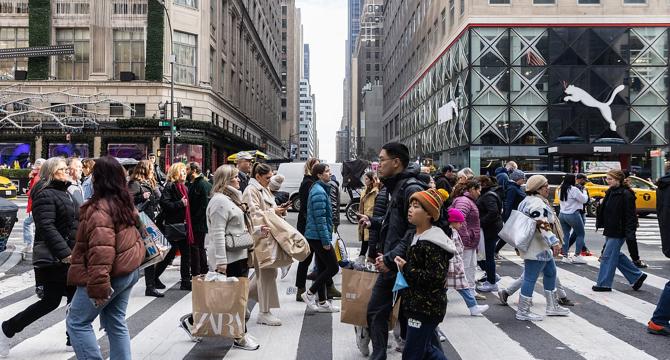Bloomberg Quint
1w
288

Image Credit: Bloomberg Quint
Fed’s Deepest Tariff Fear Is A Price Shock That Won’t Fade Away
- The Fed's concerns about tariffs primarily revolve around the potential for a sustained price shock rather than a temporary increase in consumer prices.
- The public's inflation expectations play a significant role in shaping actual inflation outcomes, prompting the Fed to closely monitor future inflation estimates.
- A rise in long-term inflation expectations could signal a lack of faith in the Fed's ability to maintain price stability, leading to greater policy challenges.
- Consumer and business outlooks suggest a potential for higher inflation due to tariff-induced price hikes, impacting wage demands and pricing strategies.
- Despite varied data on inflation expectations, the Fed is vigilant, with Chair Jerome Powell considering certain survey results as outliers.
- Expected tariff impacts are anticipated to be broad-based, possibly necessitating the Fed to maintain credibility through anchored longer-term inflation expectations.
- The recent shift in consumer sentiment post-pandemic and geopolitical events shapes inflation perceptions, influencing economic decisions and Fed policy.
- Central bank officials draw valuable insights from global inflation experiences, emphasizing the importance of managing inflation expectations for policy effectiveness.
- Amid uncertainties, maintaining credibility through transparent communication on inflation concerns is crucial for central banks like the Fed.
- Lessons from historical inflation episodes globally underscore the significance of swift action and a comprehensive approach to addressing inflation expectations.
Read Full Article
17 Likes
For uninterrupted reading, download the app